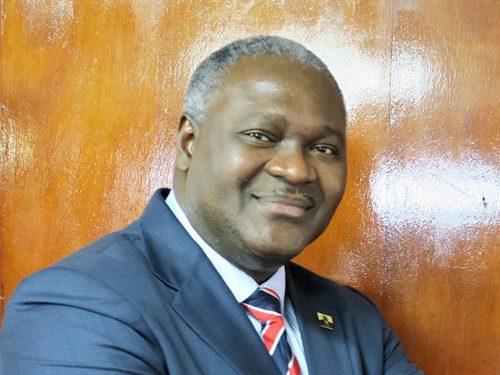In light of the recent award of the Millennium Challenge Corporation (MCC) Grant to Sierra Leone, the opposition All Pepple’s Congress (APC) heavyweight, lawyer Joseph Fitzgerald Kamara, popularly known as JFK, has emerged as a prominent and strong advocate for stringent oversight and accountability in the implementation of the grant. The former Minister of Justice and Attorney General underscored the necessity of transparency and prudent management of the MCC grant to maximize the benefits of the dole out for the nation’s transformative development.
Kamara’s remarks came in a comprehensive statement in which he clearly acknowledged the MCC grant’s potential to foster positive change in Sierra Leone. “This financial assistance represents a significant opportunity for our nation,” he stated, highlighting the importance of responsible stewardship of these resources. His advocacy reflects a broader concern among Sierra Leoneans regarding the historical mismanagement of foreign aid and grants in the country.
As the government prepares to have deployed the MCC funds for various national development projects, Kamara’s call for accountability resonates with many who have witnessed previous financial instances to Sierra Leone wherein similar initiatives have faltered due to a lack of monitoring and oversight. He stressed that without robust mechanisms in place, the risk of corruption and inefficiency looms large. “To truly benefit from this grant, we must ensure that every dollar is accounted for and that projects are executed with integrity,” he added.
Kamara, a leading APC figure and one of the contenders for the 2028 party’s flag bearer proposed a multifaceted approach to governance regarding the grant’s implementation. He advocated for the active involvement of Civil Society Organizations and opposition groups in the oversight process. “It is crucial that we integrate diverse stakeholders into the architecture of project management,” Kamara further proposed. This collaborative framework would not only enhance the credibility of the initiatives but also empower citizens by involving them in decisions that affect their lives.
His statements come amid rising expectations from the public for the government to demonstrate effective use of international support. As Sierra Leone grapples with numerous socio-economic challenges, the MCC grant represents a beacon of hope for transformative change. However, the cynicism rooted in past experiences has made many citizens cautious, fuelling a demand for transparency in how the funds will be utilized.
The MCC grant, which focuses on critical sectors such as infrastructure, education, and health, has the potential to significantly uplift communities across Sierra Leone. However, Kamara’s emphasis on accountability serves as a crucial reminder of the responsibilities that accompany such financial support. The call for oversight mechanisms is not just about safeguarding funds but ensuring that the benefits of the grant reach those most in need.
In addition, Kamara’s plea for a transparent implementation process highlights a growing consensus among the populace about the necessity for reform in governance practices. Many Sierra Leoneans believe that past mismanagement of resources has hindered the country’s development trajectory. By advocating for transparency, Kamara aligns himself with a broader movement demanding systemic change and a more accountable government.
As the nation stands on the brink of utilizing the MCC Grant, the pressure is on both the Government and its leaders to rise to the occasion. JFK’s call for integrity and accountability is not merely a political stance; it is a clarion call for a new era of governance that prioritizes the interests of the people over personal gain.
In conclusion, as Sierra Leone embarks on this critical phase of development, Kamara’s insights provide a roadmap for how the nation can leverage international assistance effectively. The emphasis on collaboration and oversight is essential to ensure that the MCC Grant serves as a catalyst for sustainable growth, paving the way for a brighter future for all Sierra Leoneans. The challenge now lies in translating this vision into action and ensuring that the lessons of the past inform the strategies of the future.











